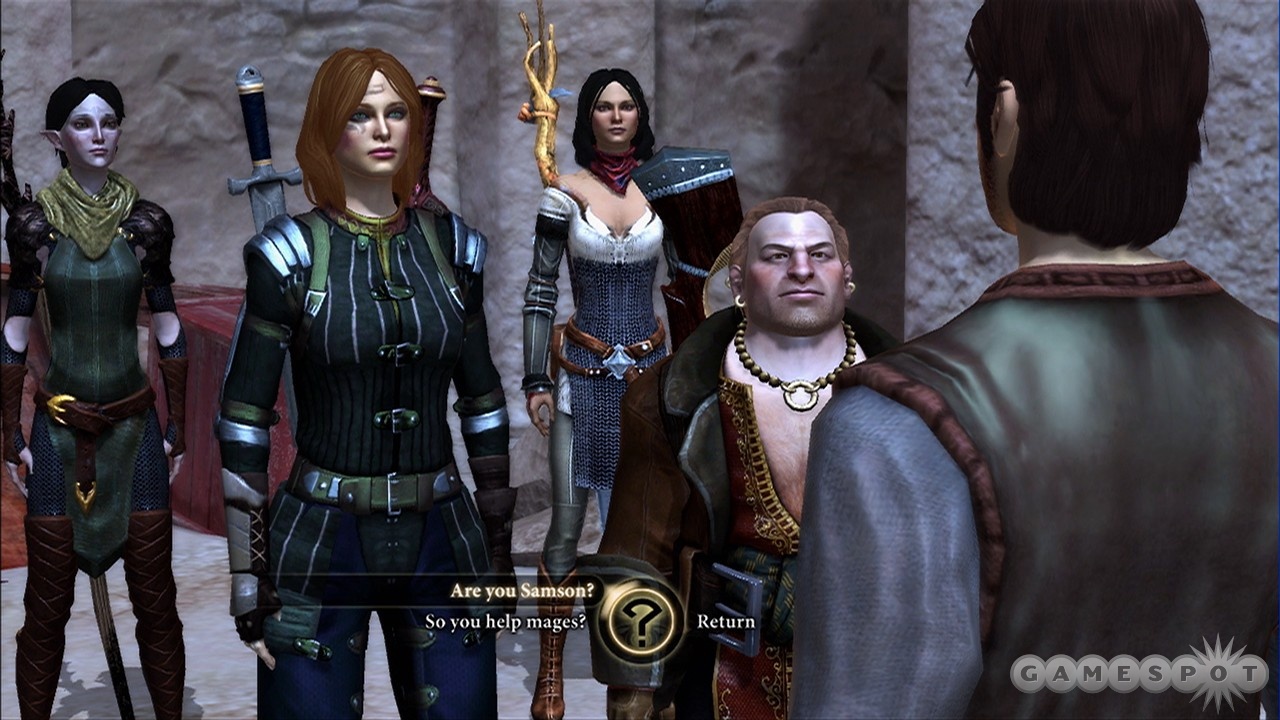The Dangers of Gamer Entitlement
Why BioWare's Jennifer Hepler suffered a vicious verbal attack at the hands of gamers this week.
This week, a small subset of the gaming community humiliated, defiled, and verbally attacked a female BioWare employee for the suggestion that video games should place more importance on narrative.
The attack on Jennifer Hepler, which continues with a consistent, unrelenting, and deep-set conviction not unlike religious fervor, points to an escalating manifestation of gamer entitlement, the idea that gamers have the right to do and say without suffering the consequences of their actions.
Hepler, a senior writer at BioWare with credits on titles including Dragon Age: Origins, Dragon Age II, and Star Wars: The Old Republic, was the subject of a Reddit post earlier this month referencing an interview she gave in 2006 in which she says a fast-forward button could be used to make games more appealing to a broader audience, including women.
"Games almost always include a way to 'button-through' dialogue without paying attention because they understand that some players don't enjoy listening to dialogue and they don't want to stop their fun," Hepler said in the interview. "Yet they persist in practically coming into your living room and forcing you to play through the combat even if you're a player who only enjoys the dialogue. In a game with sufficient story to be interesting without the fighting, there is no reason on earth that you can't have a little button at the corner of the screen that you can click to skip to the end of the fighting."
The original Reddit post--titled "This women(sic) is the cancer that is killing BioWare"--was later removed by Reddit's moderators for violating the site's code of conduct and directly targeting an individual.
Hepler, unaware of the escalating undercurrent of rage mounting over a point she made six years ago, joined Twitter on February 2. In the 10 days since, Hepler has been called "cunt", "slut", and "whore". She's been criticized for her gender, her appearance, and her religion. Attacks on her have referenced Hitler, bestiality, rape, murder, cannibalism, and prostitution.
And for what?
For suggesting that maybe video games should have skippable combat sequences, just the way they have skippable story sequences? For suggesting that players who are more interested in story than gameplay should be given more choice? There's hardly any point in trying to defend her original argument, whose validity should be immediately clear to anyone who understands that video games, like other forms of media, constantly strive to evolve and attract a growing audience. (It's even been put into practice before--L.A. Noire allowed players to skip action sequences after three failed attempts.)
No, the torrent of abuse that Hepler has endured has had little to do with skippable combat in games. The savagery displayed this week flows not from specifics but from the sense of ownership that makes some gamers believe that they own the games they play. That's a common mistake; gamers buy games, so naturally they feel entitled to them. But games are, and have always been, the property of the people who made them. People like Jennifer Hepler.
While an increasing number of publishers and developers seek to establish an ongoing relationship with players through fan sites, communities, forums, and social networks, the creation of this two-way communication channel brings with it the illusion that players are entitled to affect the decisions directly related to them. So, when a company like BioWare--whose relationship with its players and community has, for the most part, relied on mutual respect--makes the decision to delay a game due to any number of reasons, gamers who have actively invested in "loving" BioWare and its games feel it's their every right to lash out.
Gamers who feel this sense of entitlement fail to view the player-developer relationship as the multifaceted construct that it is. They fail to see that a relationship between an individual and a company requires a different set of guidelines, emotions, and responses to a relationship between two separate individuals. Jennifer Hepler is the consequence of that misconstrued connection. She is an individual whose attackers, angered by her suggestion that games should focus less on combat, acted on the belief that they are the only ones who can, and should, dictate how games are made and played.
How much respect should a company show to a group of gamers who launch a personal attack on one of its employees? BioWare Edmonton studio general manager Aaryn Flynn gave up any hope of a civilized conversation earlier this week, retorting with "Whatever, f***ing moron" in reply to a tweet about Hepler's "pig disgusting fetishes." The backlash was immediate: tweets filed in calling BioWare unfaithful to its community, arguing that the company "treated its loyal fans like crap" after they offered "genuine criticism."
But BioWare has the right to do so much more. It has the right to pursue legal action against Hepler's attackers. It has the right to shut them out of its community, to refuse them any kind of service in the future. It has the right to tell them that this behavior has no place in the gaming community, to show them that every sexist, racist, comment only serves to undo years of growth and progress in changing outdated attitudes in the industry.
Like us, BioWare has the right to stand up to each and every gamer who brutalized, harassed, and dehumanized Jennifer Hepler, a game developer who to date has dedicated her working life to making games better for the very same people who turned on her.
UPDATE: BioWare CEO and cofounder Dr. Ray Muzyka responded to the attacks on Hepler overnight, donating US$1000 to Bullying Canada in her name.
Got a news tip or want to contact us directly? Email news@gamespot.com


Join the conversation